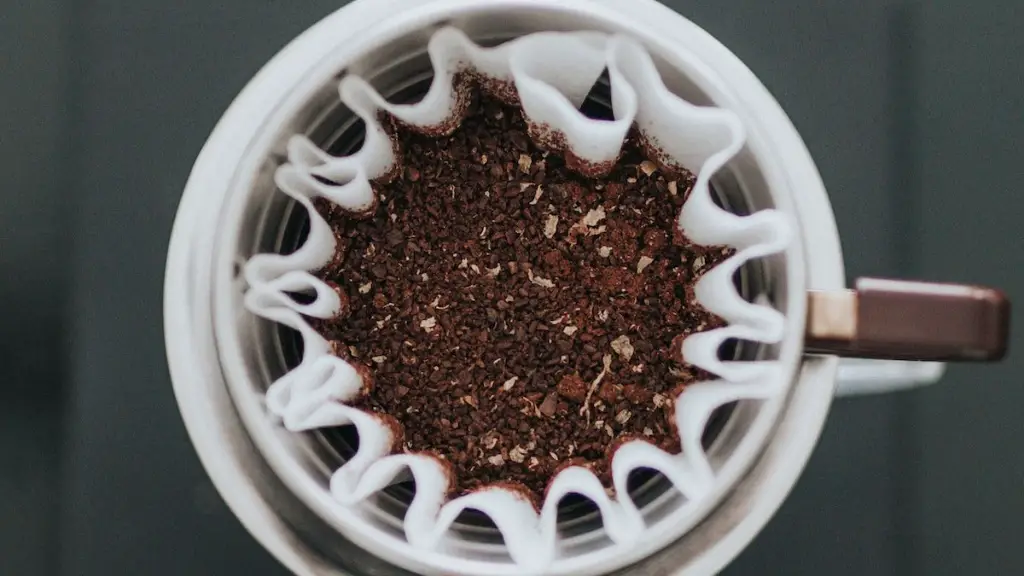Overview
Coffee is one of the most popular drinks in the world and most of us are familiar with its energizing effects. This stimulating drink can be consumed in various ways – some like it black, while others prefer cream and sugar. Whatever the preference, coffee has been known to provide a pick-me-up when it’s needed most. But while it can be a helpful, energy-boosting beverage, there are some cautionary tales that come with it. For instance, drinking coffee on an empty stomach can be detrimental to those suffering from certain health conditions, such as stomach ulcers. This article will explore the potential risks of drinking coffee on an empty stomach and discuss the potential health implications.
Coffee on an Empty Stomach
When caffeine is consumed on an empty stomach, it can affect the lining of the stomach, making it more susceptible to developing ulcers. Furthermore, the acidity of coffee can irritate the stomach lining, which can aggravate any existing ulcers. The caffeine found in coffee can also have a stimulating effect on the digestive system, resulting in an overproduction of stomach acid, which can further irritate stomach ulcers. In other words, coffee drinkers should be cautious and be aware of the potential implications of drinking coffee on an empty stomach.
Coffee and Ulcer Risk
The exact relationship between drinking coffee on an empty stomach and developing stomach ulcers is still unclear. Some experts suggest that while coffee may not necessarily cause ulcers, it may contribute to the condition if someone is already more likely to develop ulcers. For instance, if a person is prone to developing stomach ulcers as a result of another medical condition, drinking coffee on an empty stomach could further increase the risk of developing an ulcer.
Other Health Concerns
Coffee consumption on an empty stomach can have other health implications as well. For instance, caffeinated beverages can be dehydrating and increase the risk of other health issues such as headaches, insomnia and even anxiety. Furthermore, drinking coffee on an empty stomach can be a shock to the digestive system and can cause nausea and nausea-like symptoms. All in all, drinking coffee on an empty stomach should be avoided if possible.
Best Practices for Coffee Consumption
For those who are concerned about the potential health implications of drinking coffee on an empty stomach, there are a few best practices to keep in mind. Firstly, it is always best to consume coffee along with a meal or a snack – this will help to reduce the overall acidity and prevent any upsets in the stomach. Furthermore, it is important to remember that everyone is different and some people may be more sensitive to the effects of coffee than others. It is best to be mindful of any reactions that one has when consuming coffee and to adjust one’s consumption accordingly.
When to See a Doctor
If a person is experiencing any symptoms or worrisome reactions after drinking coffee on an empty stomach, it is best to speak with a doctor. For instance, if a person experiences excessive stomach pain or any other signs of an ulcer, such as bleeding or vomiting, it is best to seek medical attention. Furthermore, for those who are taking any medications for a pre-existing medical condition, it is important to speak with a doctor before drinking coffee on an empty stomach.
Alternative Beverages
Finally, there are other caffeine-free beverages that offer the same energizing effects without the potential health risks. For instance, herbal teas such as chamomile and peppermint are both naturally caffeine-free and can be consumed on an empty stomach without worry. Alternatively, matcha and yerba mate are two excellent caffeine-containing alternatives to coffee that can provide a boost when it’s most needed.
Alternative and Plant-Based Ingredients
If one is looking for a coffee-based beverage, there are alternative coffee ingredients that can be added to coffee or brewed with coffee. For instance, chicory can be added to coffee to reduce the overall acidity and caffeine content while also adding additional flavor. Additionally, there are numerous plant-based coffee alternatives, including dandelion root coffee and chaga mushroom coffee. These coffee alternatives are low in acidity and caffeine and offer a tasty alternative to regular coffee.
Caffeine-Infused Foods
Finally, there are a variety of caffeine-infused foods that can provide an energizing boost without the need to drink coffee. For instance, there are numerous energy bars, snacks and even energy drinks that contain caffeine, as well as other helpful nutrients and vitamins. Additionally, there are numerous products on the market that contain caffeine in the form of pill, powder and liquid, making it easier for individuals to get the energizing effects of caffeine without the potential health risks associated with drinking coffee on an empty stomach.
Long-Term Effects of Caffeine
It is important to remember that caffeine is a drug and should be treated with respect. Those who consume too much caffeine for long periods of time can develop negative side-effects, such as insomnia, irritability and restlessness. Caffeine can also be addictive and cause withdrawal symptoms when not consumed. Furthermore, if a person is pregnant or breastfeeding, it is important to consult with a medical professional before consuming caffeinated beverages or caffeine-infused foods.
Concerns About Caffeine-Free Beverages
Although caffeine-free beverages are an excellent alternative to coffee, they could still have some potential health risks. For instance, some of these drinks may contain additives and artificial sweeteners, which can be detrimental to one’s health. Additionally, many of these drinks may contain high amounts of sugar, which can lead to weight gain and other health issues. Thus, it is important to read the labels of any caffeinated or caffeine-free beverages to ensure that one is aware of what ingredients are contained in the product.


